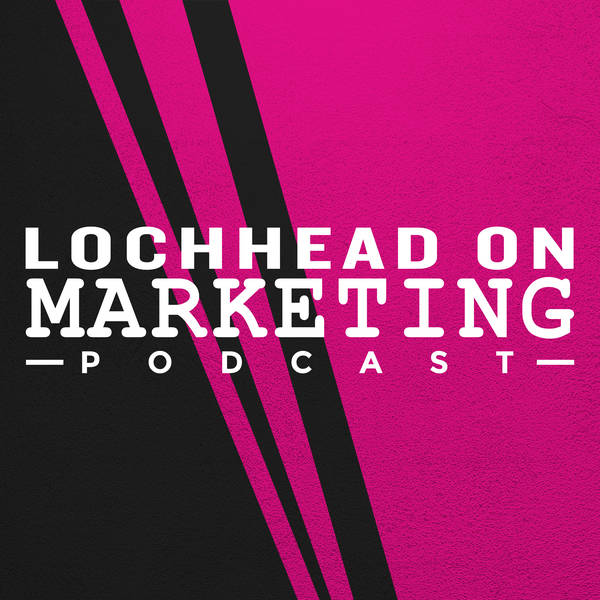
167 The Monster Category Battle: OpenAI & Microsoft vs Google
On this episode of Lochhead on Marketing, let’s talk about what most people are missing about the biggest category battle of the decade: OpenAI & Microsoft vs. Google.
Even some of the smartest people in business can't see what's happening here, as most people don’t have a category design lens; they have a competition lens. The competition lens is about winning a comparison game with other companies, which at most leads to a small piece of the market share, and rarely leads to being the category leader of said field.
So join us as we dig into how to view the new AI category battle through the category lens, beyond product brand, and business model.
Welcome to Lochhead on Marketing. The number one charting marketing podcast for marketers, category designers, and entrepreneurs with a different mind.
Categories Matter
Before we look into things through the category lens, we need to point out why categories matter so much. The simple answer is: categories matter because that's how human brains make sense of information.
“Here's a simple example: If I say to you: ‘automobile’, you know what that is. And then if I say to you muscle car, you know that a muscle car is a subcategory of automobile. Because the way the human mind works is that you and I ascertain information, and we need to put it somewhere in a file folder, because we need to sort that shit out and make sense of it.”
– Christopher Lochhead
The second piece of it is, each of these categories and subcategories, these folders in our mind are also a hierarchy of value. Whichever is valuable or not is how they are perceived by everyone, and we collectively give some things higher values than others, even if it sometimes doesn’t make sense why some things are more expensive than things that are actually important.
Remember, there was a point in time where nobody paid for water. And then Evian showed up and got people to pay a premium price for a free product they had in their tap.
OpenAI vs Microsoft
So we get to the meat of the dialogue, which is about Microsoft & OpenAI and their new product, ChatGPT. ChatGPT represents a new category called consumer AI. Though there have been previous AI technologies that have been launched it the web before, none are as well-defined and has had a impact as big as ChatGPT.
This in turn got people thinking if Microsoft is muscling in on the Search War. Well, not exactly – because Microsoft already lost that battle with their Bing search engine. Google controls about 83% market share of searches online, compared to Microsoft Bing’s 9.9%. So clearly, Google is the Category King in that regard.
ChatGPT, however, is a whole other product and a different category altogether. ChatGPT does not search for the answer, it creates the answer based on the collective information that is available to it. It’s not he old category of Search, but a new category called Answer.
After the success of OpenAI & ChatGPT grew and garnered more positive feedback from the market, Google has decided to create its own version of it. Which is ironic, as they fell into the same trap that Microsoft found themselves in with Bing before.
To learn more about the surge of new categories from AI, and how to treat these new categories from a category lens perspective, download and listen to this episode.
Bio
Christopher Lochhead is a #1 Apple podcaster and #1 Amazon bestselling co-author of books: Niche Down and Play Bigger.
He has been an advisor to over 50 venture-backed startups; a former three-time Silicon Valley public company CMO and an entrepreneur.
Furthermore, he has been called “one of the best minds in marketing” by The Marketing Journal, a “Human Exclamation Point” by Fast Company, a “quasar” by NBA legend Bill Walton and “off-putting to some” by The Economist.
In addition, he served as a chief marketing officer of software juggernaut Mercury Interactive. Hewlett-Packard acquired the company in 2006, for $4.5 billion.
